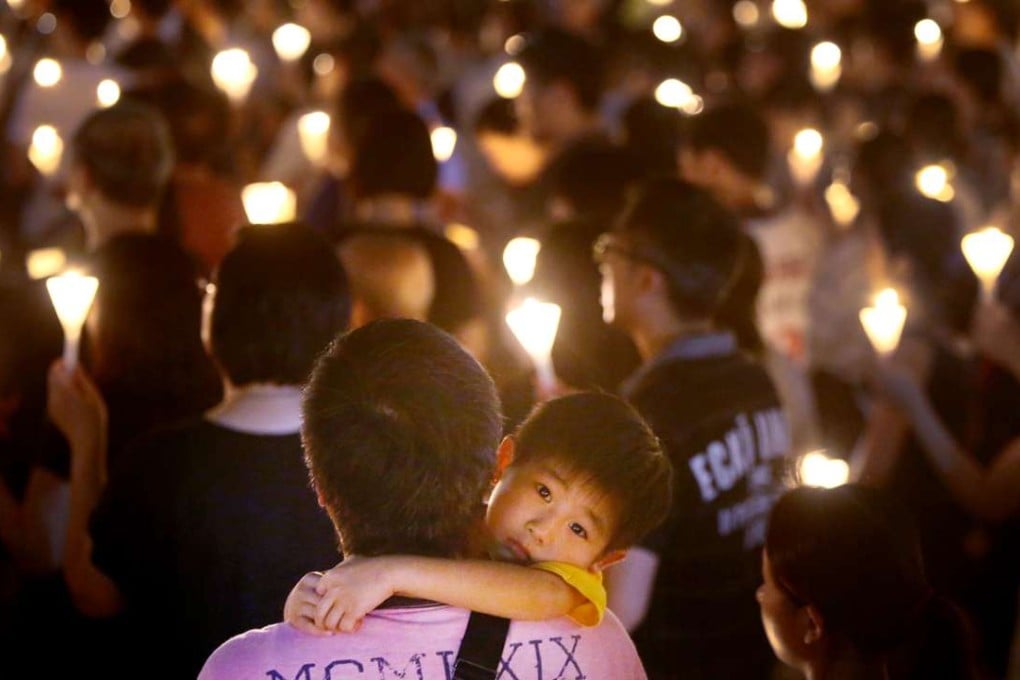Sea of candles in Hong Kong at June 4 vigil despite boycott calls
Organisers say 125,000 people took part in the Victoria Park event, while another 2,500 attended alternative events at two university campuses

Tens of thousands of candles lit up Victoria Park last night in what was at the same time communal mourning for pro-democracy protesters killed in and around Tiananmen Square 27 years ago and a show of defiance to those who believe the gathering is a waste of time.
Despite a student-led boycott of the annual candlelight vigil – which saw a much smaller number gather at alternative events across the city – organisers put the turnout in the park at 125,000, 10,000 down from last year and the lowest since the 20th anniversary vigil in 2009.

Police said 21,800 people were in Victoria Park at the height of the gathering.
A total of about 2,500 joined alternative events at two universities where student unions staged their own forums to focus attention on Hong Kong’s own future.
Participants at the vigil filled six soccer fields at Victoria Park to mourn those whose death remains a taboo on the mainland.